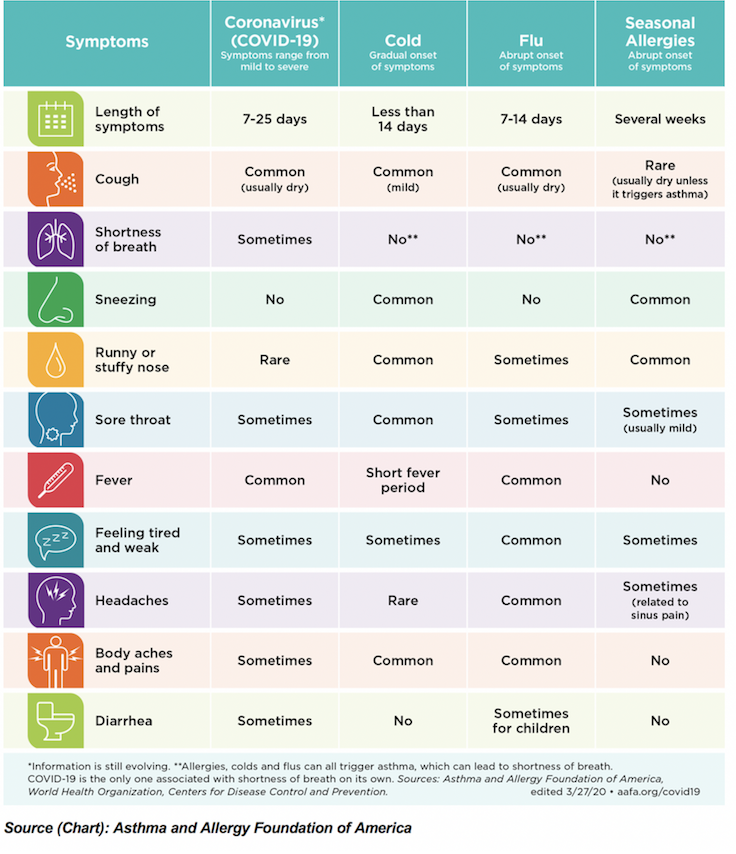
How Do You Know If You Have Covid Or Allergies. Allergies can also make people feel itchy which is something not found with COVID-19. The main warning signs of COVID-19 the disease caused by the new coronavirus are fever fatigue and a dry cough. If you have had a severe allergic reaction or an immediate allergic reactioneven if it was not severeto any ingredient in an mRNA COVID-19 vaccine you should not get either of the currently available mRNA COVID-19 vaccines Pfizer-BioNTech and Moderna. If You Are Allergic to an Ingredient in a COVID-19 Vaccine.

The Saskatchewan Health Authority has published a reference chart comparing COVID. COVID-19 is a respiratory condition caused by a coronavirus. Even if you know you have a sinus infection or COVID-19 speak with a doctor if your symptoms dont improve or begin to get worse. Also while COVID-19 can cause shortness of breath or difficulty breathing seasonal allergies dont usually cause these symptoms unless you have a respiratory condition such as asthma that can be triggered by pollen exposure. Your primary care provider can help you manage your COVID-19 symptoms and take preventative measures to ensure you dont spread the virus. In addition if you have already had a reaction to the.
A loss of taste or smell for example was quickly identified as a very.
Some medical professionals have linked COVID-19s emergent delta variant to standout symptoms such as a stuffy nose a sore throat and a headache rather than the. Sometimes it also causes cold -like symptoms like a. Knowing the various symptoms of asthma and allergies as well as COVID-19 could help you discern whats happening in your. If you have a known history of allergies consider this. The Saskatchewan Health Authority has published a reference chart comparing COVID. Whats in the COVID-19 Vaccines.